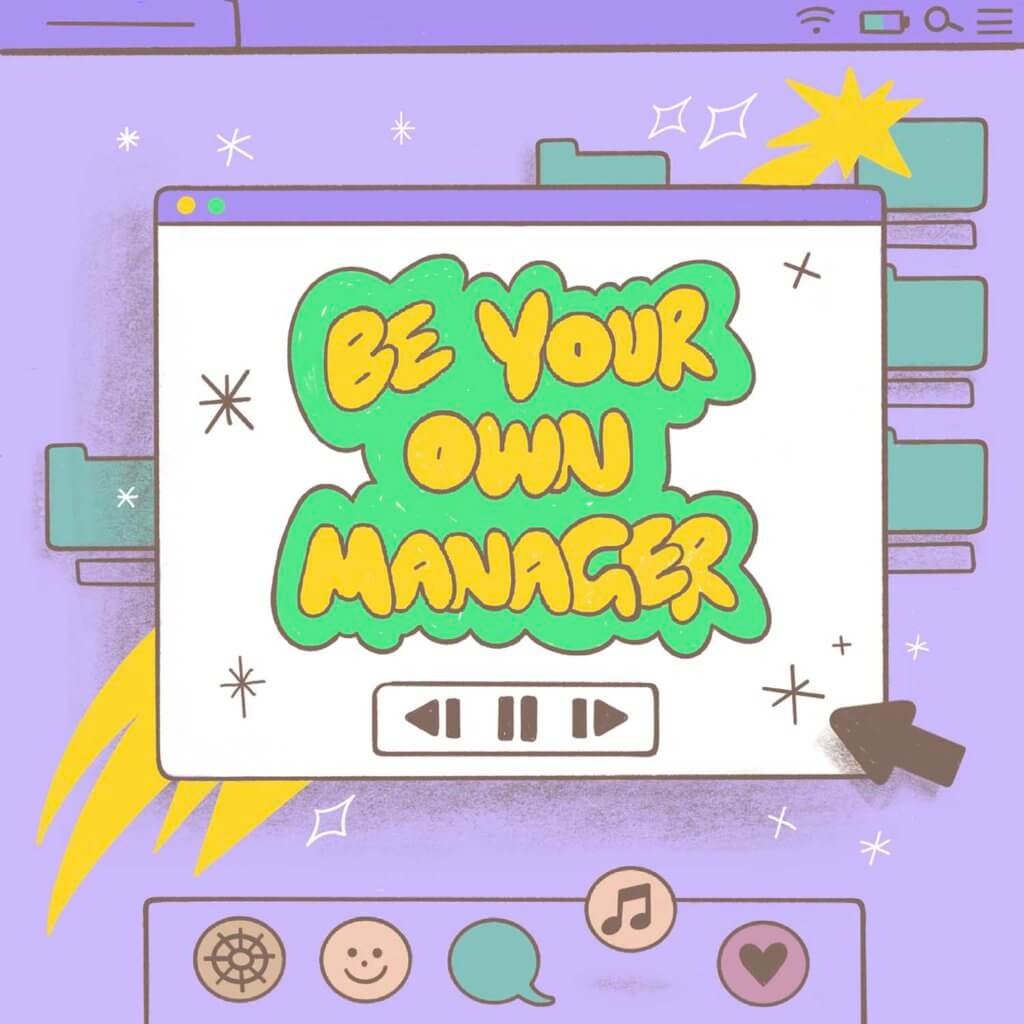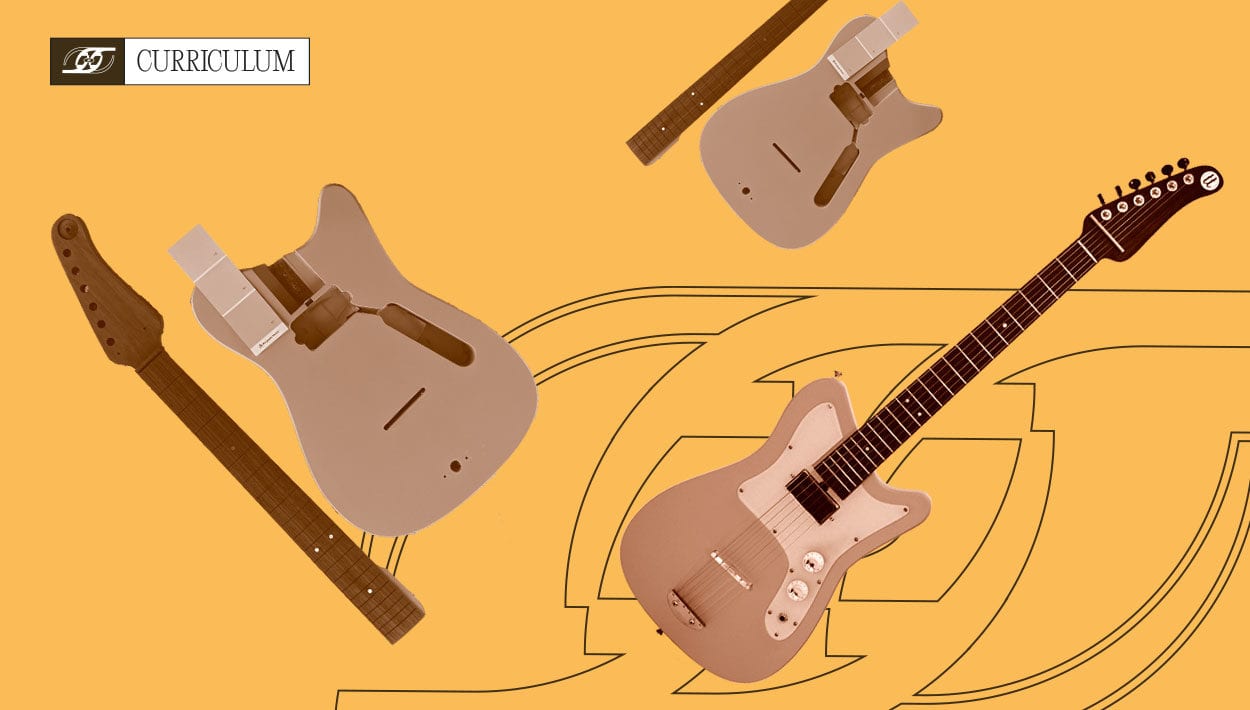Be Your Own Manager Part One: Why Self-Management?
Guitar Gabby has self-managed herself and the Txlips for the last five years. In this four-part series, she’ll outline the basics to self-management.
Self-management can be a daunting task—and I must admit, it is a lot. When I first licensed my band, the TxLips, as a LLC, I wasn’t sure of a lot of things. I didn’t fully know how to maneuver through this tricky industry, and I wasn’t sure how to go about managing a whole band while starting law school and working a full-time job. I just knew that I had a goal and a vision, and I had to achieve it the best way possible.
This started my “if you want something done, do it yourself” quest. I knew that if I gave my vision to someone else to manage (a record label or a malicious manager determined to steal or alter my vision), I’d never get my business to its ultimate destination: creating longevity and impact. So began the trial and error part of my journey.

I asked my followers what their understanding of self-management was, and if they find benefits in self-managing their artistry and bands. The responses varied but were very insightful into what most people think of self-management. Many agreed that self-management is good for those who want to remain in control of their vision. They believe that there is an immense amount of freedom that comes with self-management (i.e. no labels to answer to, no greedy managers to fight with). Depending on your level of experience and education, you can draft your own contracts, negotiate and mediate your own disputes, and even regulate your royalties and earnings. (These types of things are commonly outsourced to people who are trained in and fully understand law and business.)
On the flip side, there are many people that get discouraged from self-management because they don’t know where to start and aren’t comfortable with the idea of doing everything themselves. They’re not prepared to make their own contacts and connections with venues, booking agents, or talent buyers from the ground up. A lot of work goes into building anything comprehensively, and many people expressed that they don’t have the time, will, or patience to develop such a painstaking dexterity for business.
When I was a kid, my dad told me to always think big if I want to win big. He explained that I needed to understand the business of music if I’m going to be successful in it. I had no clue what that meant, and I didn’t really understand why it was even relevant. I was just interested in playing guitar and singing the songs I was writing in the garage after a long day of treacherous middle and high school classes.

My dad’s lessons didn’t hit me until I started my undergrad at Spelman College. While many of the bands I played in had amazing material and great stage presence, I noticed that one thing was consistent among most of them: they weren’t progressing. This was mostly due to the overzealous desire to “make it big” and the band leaders’ willingness to forego patience and protection of the band’s number one asset: intellectual property (or, the music). Additionally, we were playing local gigs that were fun for the first year or so, but after a while it felt like we were playing to the same crowd, at the same venues, on the same day of the week. All of a sudden, our growth became stagnant.
This got me thinking about the betterment of my vision and desire to represent on behalf of women of color in the music industry. I learned from my previous experiences that I would need more than aspiration and musical ability to make a long-term impact; I would have to buckle up and learn the business, inside and out. I had to learn how this harsh industry works and how to navigate through it as a woman, and a woman of color at that. So I set out on a journey that has been ever so rewarding. Self-management helped me to not just advance my band, but to learn about and advance a business that I hope to one day pass on to my future children.
While self-management is not for everyone, those who desire to learn the tactics and basic fundamentals may be able to take a few tips from my next three pieces in this series:
Part Two will explore where to start with self management including organizing and booking gigs.
Part Three will emphasize the importance of working with the right people, utilizing immediate resources to build onto your brand, and patience.
Part Four will explore the basics of copyright, trademark, and business formation.














Comments
Can’t wait for the next parts???????
Comment by Joiliyah on January 20, 2020 at 9:02 amThacnk you so much for this. I was into this is https://tracktrace.one/usps/ sue and tired to tinker around to check if its possible but couldnt get it done. Now that i have seen the way you did it, thanks guys
Comment by dcmadcssmith Smith on February 15, 2020 at 3:29 amwith
regardsd
Absolute truth!
Comment by Ro on March 12, 2020 at 7:31 amThanks for interesting post please share more 🙂
Comment by Vanessa on July 26, 2020 at 1:28 amThe best advertising for business is clients who give recommendations to their friends and so on. Good service always guarantees that people will return to your company, I choose https://wow24-7.io/customer-support-for-ecommerce because they serve customers at a high level around the clock and this guarantees me positive feedback, I recommend!
Comment by Jenna Merry on January 29, 2023 at 12:08 pmI comprehend what you mean. I distinctly remember the time when I found myself in need of a lawyer in Montana. It was then that a trusted friend suggested exploring this resource https://www.jdsupra.com/legalnews/sarms-enforcement-and-fda-escalation-9967738/ . This platform provides comprehensive insights into sarms enforcement and fda escalation, ensuring convenient access to all the necessary information.
Comment by addams on May 25, 2023 at 5:55 am